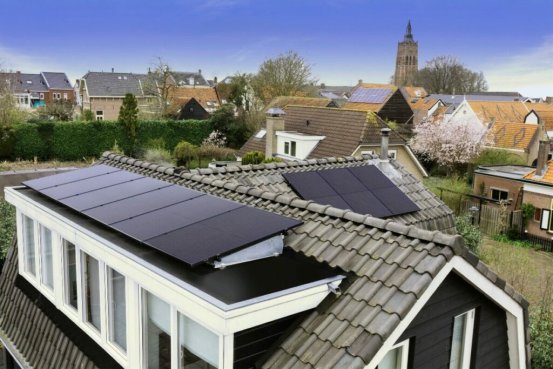

With rising electricity costs, more homeowners across the UK are considering solar panels as a way to cut expenses and reduce dependence on the national grid. Here’s how solar energy is shaping household solutions in 2025.
With rising electricity costs, more homeowners across the UK are considering solar panels as a way to cut expenses and reduce dependence on the national grid. Here’s how solar energy is shaping household solutions in 2025.

Despite the UK’s reputation for cloudy weather, modern photovoltaic technology allows solar panels to perform well even under low light. Homes with south-facing rooftops and little shading tend to see the greatest returns. Pairing panels with battery storage also enables families to use daytime-generated power in the evening. While installation costs remain a consideration, potential bill reductions and incentive programs make solar increasingly worthwhile.
One of the main drivers behind solar adoption in Britain is the range of incentives that lower upfront expenses. Past programs such as the Feed-in Tariff (FiT) rewarded households for producing their own electricity. Today, the Smart Export Guarantee (SEG) lets homeowners sell excess energy back to the grid, creating an additional income source. These schemes help offset installation costs and improve affordability for more households.
Solar systems can provide families with significant energy savings, particularly as electricity prices continue to climb. By generating their own power, households gain more predictable costs and protection from market fluctuations. Beyond monthly savings, homes equipped with solar often see higher property values and can sell faster. In this sense, solar energy acts not only as a sustainable choice but also as a long-term investment.
Adopting solar energy is a proactive step towards reducing environmental impact. Panels generate electricity without producing carbon emissions, directly contributing to the UK’s target of achieving net-zero by 2050. By shifting away from fossil fuels, homeowners help slow climate change and promote greener lifestyles. Solar adoption is a crucial part of building a more sustainable national energy system.
Continuous innovation is improving the efficiency and design of solar systems. New technologies such as bifacial panels, which capture sunlight on both sides, and integrated solar building materials allow for flexible installation options. These advancements increase performance while blending more seamlessly with modern architecture, making solar more accessible and visually appealing.
Selecting the most effective solar system requires assessing energy consumption, roof orientation, and budget. An energy audit can guide homeowners toward the right panel size and type, whether standard rooftop panels, solar shingles, or ground-mounted arrays. Partnering with experienced installers ensures that systems are tailored to household needs and deliver optimal performance.
Battery storage has become a key complement to solar panels, enabling households to store unused energy during peak sunlight hours. This energy can then be used during evenings or on cloudy days, reducing reliance on the grid. With improvements in storage technology, batteries are now more affordable and efficient, making them an attractive addition for those seeking energy independence.
Policies and building standards significantly influence solar uptake in the UK. Updated regulations often encourage renewable integration, while some councils offer local incentives or simplified approval processes. Homeowners should also be aware of restrictions in conservation areas or listed buildings. Staying informed about these rules ensures smooth installations and compliance.
The outlook for solar energy remains bright as both public interest and technological advancements continue to grow. With stronger government efforts to cut carbon emissions, solar will become a more central part of the UK’s energy strategy. As sustainability awareness rises, more households are expected to install panels, supported by innovations in smart home systems and energy management. The role of solar in shaping a cleaner, cost-efficient future is set to expand significantly.